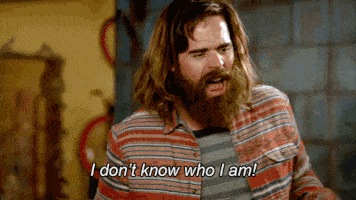What is self care?
Simply put: self care is looking after yourself. But it is sometimes easier said than done. How do you know what constitutes looking after yourself? Do I eat a salad for my physical health, or a cupcake for my mental wellbeing? It is tricky.
“Caring for myself is not self-indulgence, it is self-preservation,” said American author Audre Lorde. It’s true that sometimes self care can feel selfish or unnecessary. But there are a lot of health professionals who argue it is an important part of well being.
Self care is not the same thing as pampering yourself or a simple act of treating yourself. In fact, there exist academic journals specialising in the area of self care, and the World Health Organisation (WHO) even has resources relating to it, suggesting that self care is important for all aspects of our health. WHO point out that it is a broad concept but is important for people to establish and maintain health, as well as prevent and deal with illness. Some have split the idea of self care into ‘inner’ and ‘outer’ self care for your psychological and physiological well being.
But really it’s about listening to how you feel and introspecting about what it is that you need in that moment.
Why is self care important?
Self care keeps you healthy
On some level, self care is simply an act in taking good care of yourself. This means eating well, exercising, drinking enough water, practicing good hygiene and getting enough sleep (to name a few). Self care means that you remember to engage in these healthy activities even if you have an urgent deadline or are experiencing a stressful life event.
Self care prevents burnout
Sometimes life gets tough. Hey, life is tough. And our demanding lifestyles often lead us to push ourselves to our limits, hence, burnout. Not only does burnout feel awful, it is actually pretty bad for your health too. So self care is a good way to avoid getting to this point.
Self care reduces negative effects of stress
Stress does all sorts of terrible things to us. Amongst a whole host of other things it can cause weight gain, high blood pressure, anxiety, depression, hormone issues, the whole lot. So it is particularly important to check off some self care when you are under stress.
Self care is part of the process
Self care is not a reward; it is part of the process. But when you’re busy caught in the mechanics of living, it can be difficult to avoid falling into the trap of believing the opposite. Eating a good meal is great. But it’s not a reward, it is part of the process. So is taking a shower. And going for a run. See, self care isn’t a one-time deal. The best way to practice it is to engage is small self care habits every day.
So, self care is important. We’ve mentioned a few self care activities above but how exactly do you do it?
Self care activities
- Eat well
- Drink water
- Go to see the doctor for regular checkups
- Sleep well
- Minimise stress in your life
- Make time for fun
- Schedule breaks when you work
- Make time for the people you love
- Take time in the day to meditate or take a few deep breaths
- Feed your mind – go to an art gallery or read a good book, whatever suits your fancy
- Check in with your emotions
- Spend time journaling or writing down your thoughts
- Help someone in need, this could be small like carrying someone’s bag or shouting a stranger’s coffee
- Do something purely because it makes you happy
- Unplug from technology for a while
- Create something. Maybe art, or a film
- Spend time on personal admin
- Do some exercise! It could be something fun like Kayaking or a dance class
- Know when and where to set boundaries. Sometimes you have to say no to a request
- Celebrate your wins and accomplishments!
- Express gratitude
- Ask for help when you need it
It’s really up to you. You must first decide what you need to do in order to take care of yourself. It’s important! Say hello to self care!





